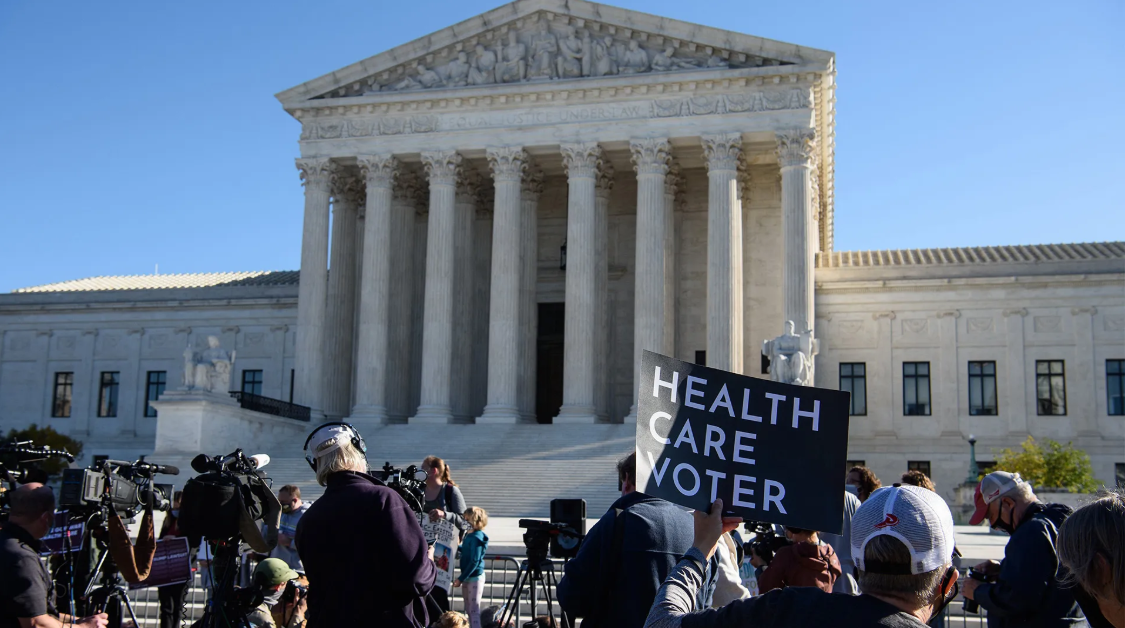The Supreme Court to decide fate of free preventive health care for millions of Americans, potentially altering how essential screenings and medications are covered under U.S. health insurance. This ruling could affect access for over 150 million Americans who currently benefit from no-cost preventive services under the Affordable Care Act (ACA).
What Is the Supreme Court Case About?
The case, Kennedy v. Braidwood Management, challenges the federal mandate requiring private insurers to cover specific preventive health services at no cost. Plaintiffs argue that the U.S. Preventive Services Task Force (USPSTF), which determines these services, lacks constitutional authority because its members were not appointed by the President and confirmed by the Senate.
This legal challenge could invalidate the ACA mandate, allowing insurers to stop offering services like cancer screenings, PrEP for HIV, and immunizations without cost-sharing.
What Services Are at Risk?
If the ruling overturns the mandate, many commonly used services may no longer be free. Here’s a comparison of what Americans currently receive vs. what could change:
Key Preventive Services and Potential Impact
| Preventive Service | Currently Free Under ACA | Could Require Payment After Ruling |
|---|---|---|
| Mammograms | Yes | Yes |
| Colon Cancer Screenings | Yes | Yes |
| HIV Prevention (PrEP) | Yes | Yes |
| HPV Vaccination | Yes | Yes |
| Blood Pressure Screening | Yes | Yes |
| Depression Screening | Yes | Yes |
Who Will Be Affected the Most?
More than 151 million Americans with employer-sponsored or ACA marketplace insurance currently benefit from free preventive care. The impact would be especially severe for:
- Low-income families who rely on these services to avoid expensive long-term treatments
- At-risk communities, including Black, Latino, and LGBTQ+ populations
- Young adults on parental insurance who regularly access screenings, STI tests, and vaccinations
This could reverse years of public health progress and disproportionately impact Americans already facing healthcare disparities.
Why This Case Matters for U.S. Health Policy
This is not just a legal battle—it’s a public health issue. Preventive care saves lives and costs. According to a 2024 CDC report:
- Every $1 spent on preventive care saves $3.70 in future medical costs
- Early cancer detection through screenings improves 5-year survival rates by over 90%
- PrEP for HIV reduces transmission risk by 99% when used consistently
If preventive services become optional or cost-sharing is introduced, millions could skip care due to cost, leading to late diagnoses and increased national healthcare spending.
What Happens Next in the Supreme Court?
The Court will hear oral arguments later this year and could issue a ruling as early as October 2025. If the mandate is overturned:
- Private insurers won’t be required to cover these services for free
- State-based mandates may vary widely
- Some insurers may still cover services voluntarily, but inconsistently across states
Final Thoughts: Why This Decision Could Reshape U.S. Health Care
This case could become one of the most significant healthcare rulings since the Affordable Care Act passed in 2010. The outcome will determine whether preventive health remains accessible to all Americans—or becomes a privilege of the few.
For now, Americans should:
- Understand their current health plan benefits
- Stay updated as the legal process unfolds
- Advocate for continued access to lifesaving care
[USnewsSphere.com / pbs]





